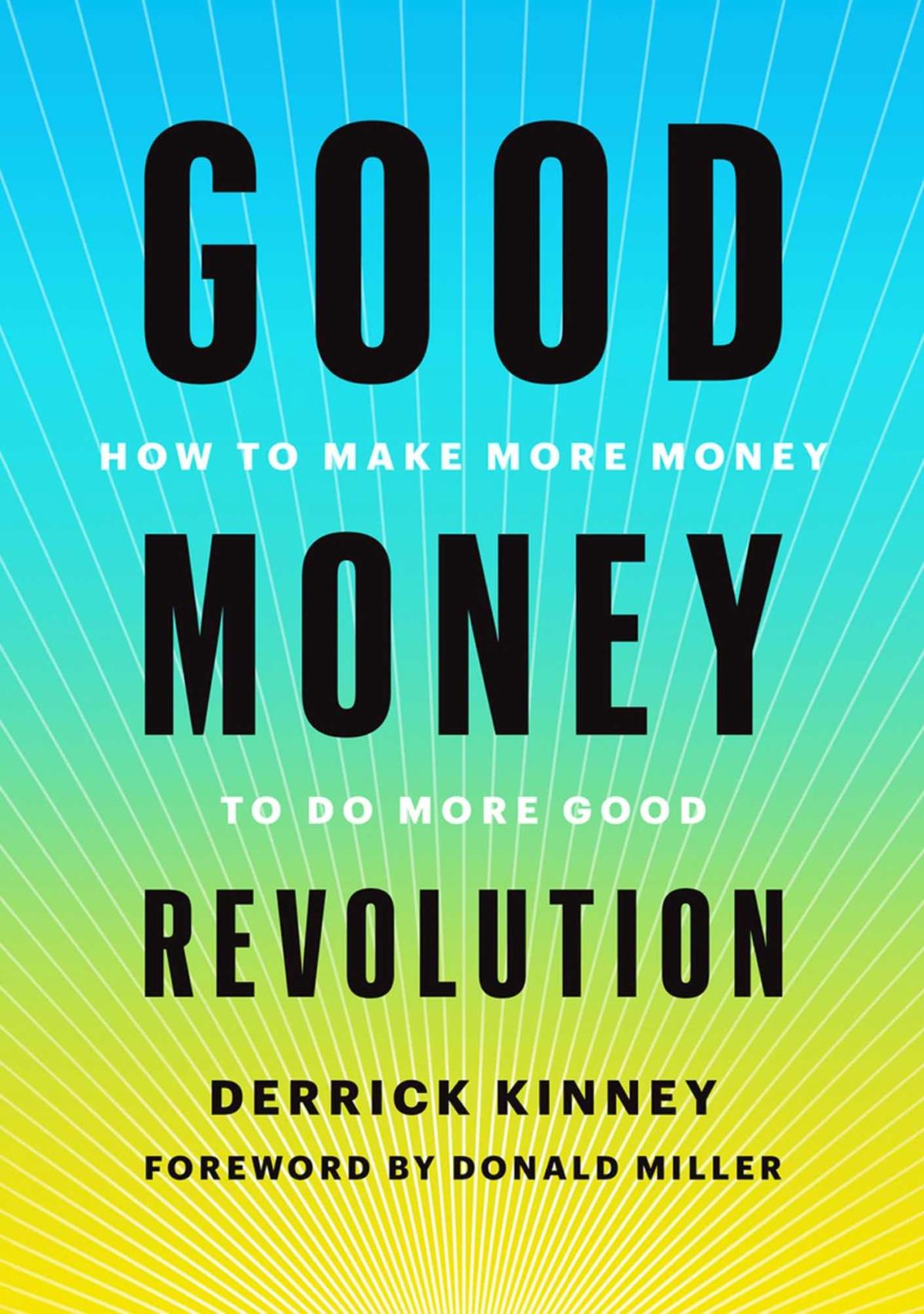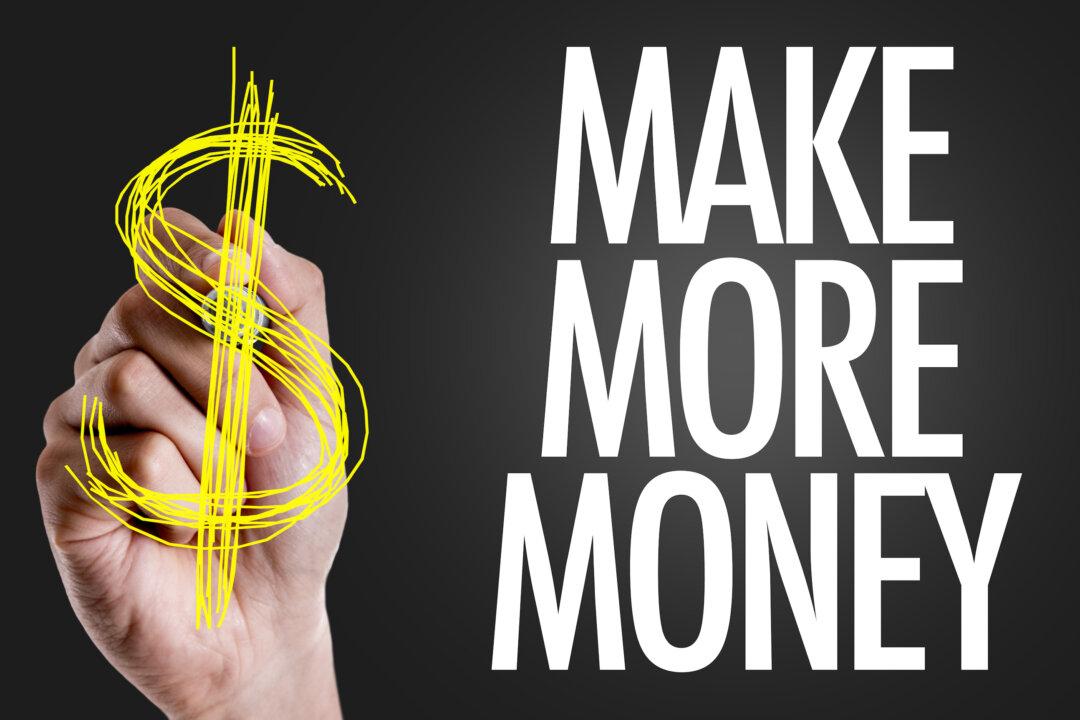MONEY IS GOOD. I like money, and I’m not ashamed or embarrassed about thinking that way. I enjoy making it, managing it, and giving it away. I love that it has provided a comfortable life for my family and me and that it allows me to help make the world a better place. Money is good because you can use it for good; you can use it to change the world.
Growing up, we didn’t have a lot of money. My dad was a metallurgical engineer and my mom worked part-time to make ends meet. As a child and into my teenage years, I watched my dad “talk the talk” but struggle to “walk the walk.” He would always look for ways to make more money and was intrigued by various opportunities to provide for our family. But he wasn’t able to make them sustainable. He got transferred, relocated, and laid off more times than I can count, resulting in six moves before I was in the sixth grade. It took a great toll on me. I felt lonely and frustrated. I never had the newest shoes or clothes or the nice house. In fact, I remember playing my first Little League game in worn blue sneakers from Kmart when everyone else had new, nice white cleats. It was obvious I didn’t belong—and I never wanted anyone else to feel that way. Even as a teenager, I was constantly asking myself, How can I help other people? My church was sending missionaries to Third World countries and needed money for supplies. The food pantry a few blocks from my house was always in need of more canned goods and volunteers. Everywhere I looked, there were needs waiting to be met.
Once I started working part-time packing grocery store shelves, I began tithing 10 percent to my church and anonymously donating to the local food pantry. (The anonymous part would stick with me.) I knew the number typed on my paycheck wasn’t set in stone, that it could grow and be used in bigger ways than I could imagine to help others. Growth and impact were infinite.
It was then that I realized why I liked money. It wasn’t for the power or the prestige. Money was a tangible tool that could be used for good, and the more good I wanted to do, the more it motivated me to make more.
Right out of college, I took a job as a marketing manager for a small software company in Fort Worth, Texas. The company didn’t manage their payroll very well and my paycheck bounced twice. Having to tell my church that my tithe check that month was hot was humbling. Another defining moment occurred after our company’s product launch, when I was passed over for an expected bonus. I was angry and tired of relying on someone else to tell me how much I was worth. I thought of my dad, who had kept working at jobs he disliked in order to support his family, and I decided I had a choice. I could keep working for someone and rely on them to tell me how much I was worth, or I could take the risk and work for myself. I decided to bet on myself and take the leap. I changed careers and began to pursue my passion of helping people make money.
While working full-time, I studied hard, earned multiple licenses, and began building my business, ultimately leaving my job and starting what would become a nationally recognized investment practice.
When I began as a financial advisor twenty-five years ago, I wanted to help people reach the goals that were important to them, and the way to do that was with their money.
Money was the tool that could help people enjoy the good life they wanted and do more good for their families, friends, and community. My clients and I were in the same boat, rowing together—as they made more money, I made more.
Then I had another realization. There were many financial advisors for people to work with. Sure, people wanted great returns on their money, and they got them, but they chose me because they felt they were part of something bigger than themselves. I realized that the more I gave back to my local community, the more people wanted to work with me.
Making money just to make money is fun and feels good for a while. But it’s like a drug. You need more and more to make yourself feel better—a nicer car, a bigger house, more stuff. You’ll find, if you haven’t already, that if you want to be truly happy, there has to be more to life than that. There’s a saying I love: “Remember when you wished for everything you have now?” Oof. I know. Wherever you are in your life right now, you most likely wished for it at some point. But it’s never enough. There will always be another new car to drive, house to build, vacation to take. Money and happiness are not equivalent. Unless you give it away. When you do, you’ll often find yourself making more money so that you can give more. It’s a motivating cycle. It’s the cycle of giving.
The key to your success and having a daily passion that fuels you is to connect your cash to a cause, your money to a movement, your profits to a purpose.
For years, you’ve probably been thinking you should be making more money, while at the same time, you’ve wondered how you can play a part in a cause you believe in. Whether you decide to stay in your job or become your own boss, I’m going to teach you how to make more money so you can feel fulfilled and make an impact on the world. But first, let’s talk about how money is good—and why you should have a lot more of it.
(To be continued...)

This excerpt is taken from “Good Money Revolution: How to Make More Money to Do More Good” by Derrick Kinney. To read other articles of this book, click here. To buy this book, click here.
The Epoch Times Copyright © 2023 The views and opinions expressed are those of the authors. They are meant for general informational purposes only and should not be construed or interpreted as a recommendation or solicitation. The Epoch Times does not provide investment, tax, legal, financial planning, estate planning, or any other personal finance advice. The Epoch Times holds no liability for the accuracy or timeliness of the information provided.





